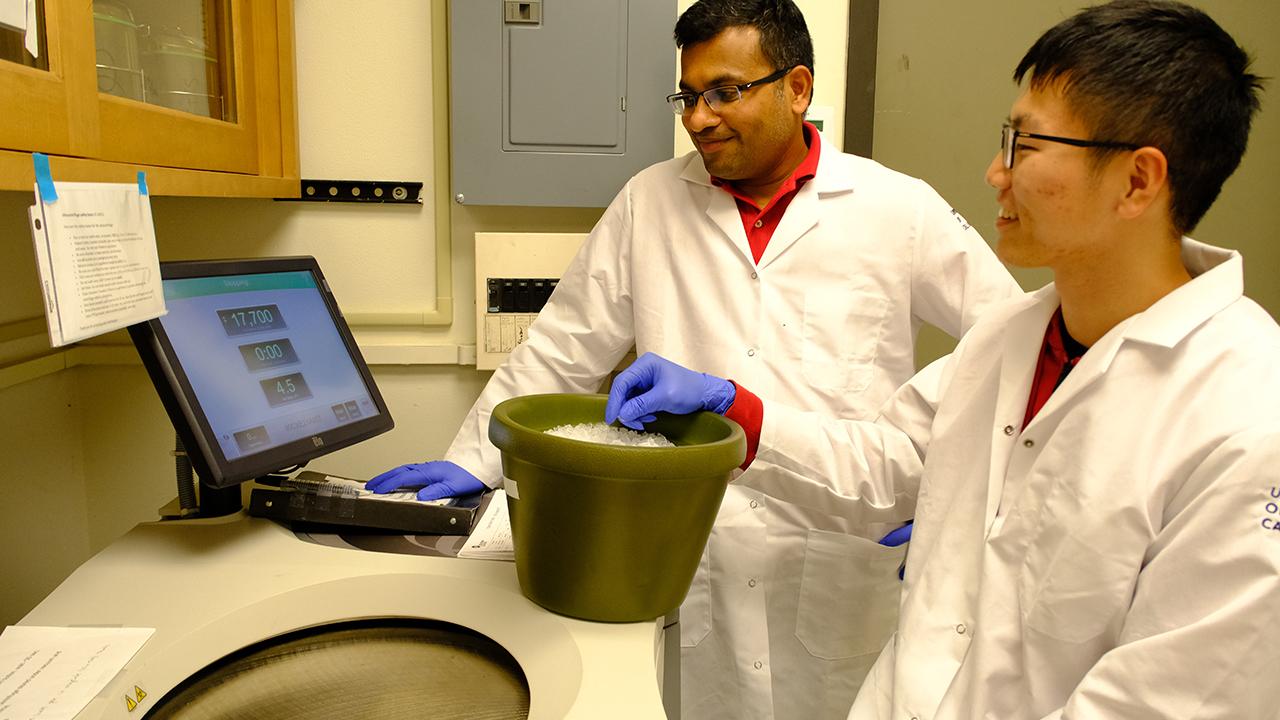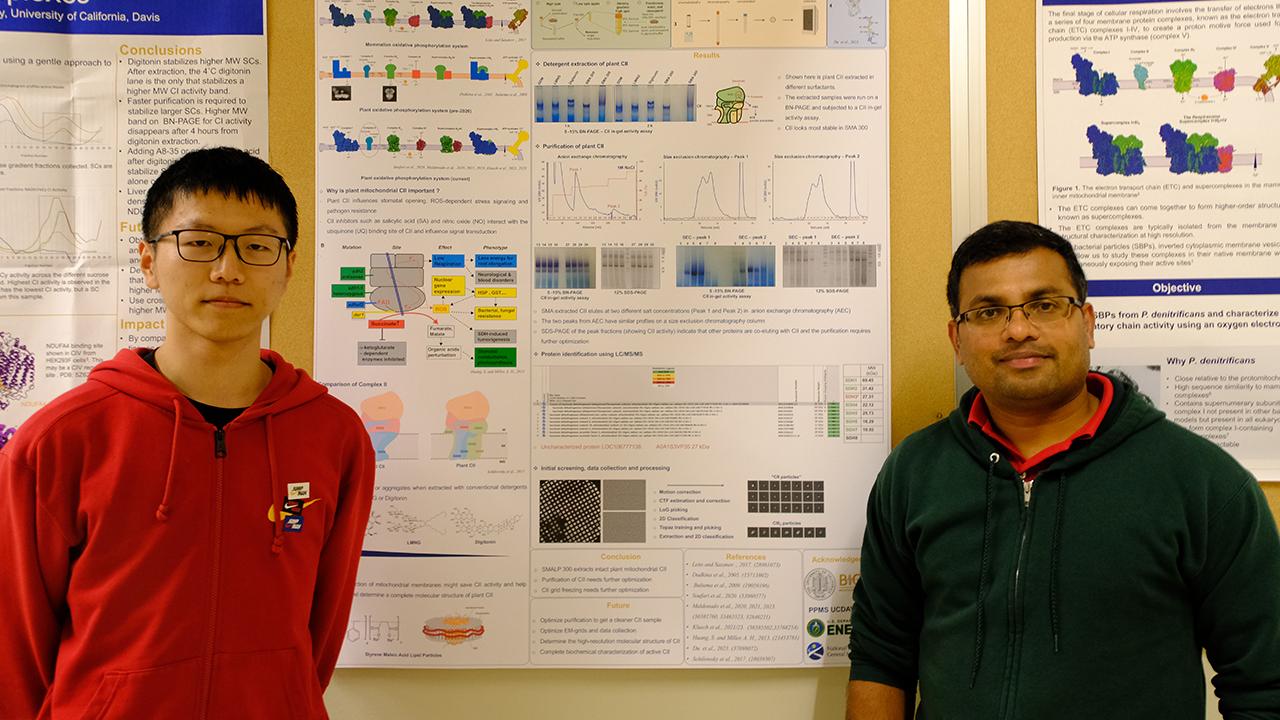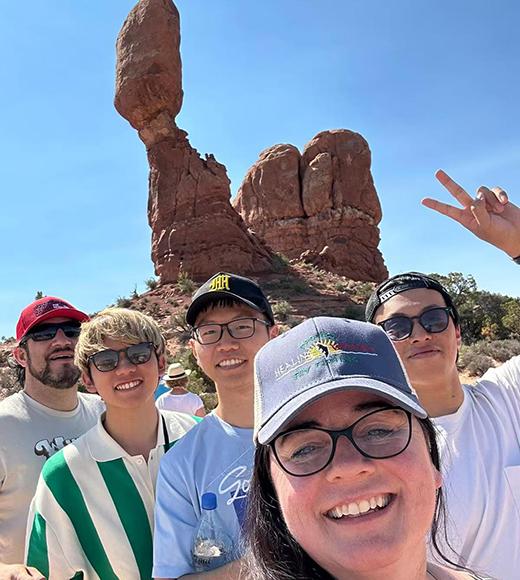
Empowering Global Scholars: The Impact of UC Davis Research Opportunities
When Bolun Zhang, or Chaplin as his friends call him, arrived at the Global Research Experience in Advanced Technologies Program, he had no idea the impact this summer research program would have on him. “My initial goal was simply to gain some experience,” said Chaplin, a third-year biology student from China. “Now, I’m more determined to pursue my studies abroad and apply for Ph.D. programs.”
UC Davis faculty members like James Lett, an associate professor of molecular and cellular biology in the College of Biological Sciences, are at the heart of this transformative experience, creating a nurturing environment where students are encouraged to push the boundaries of research and innovation.
Fostering Scientific Discovery and Cultural Connections

Available to undergraduate students in a variety of science and technology disciplines from participating partner institutions around the world, the GREAT Summer Research Program is a highly selective program that carefully matches students with a UC Davis faculty mentor based upon the student’s research interests and qualifications.
Chaplin’s prior experience in membrane protein biochemistry, cloning and protein purification made him a great fit for Letts’ lab. “Chaplin shares our passion for understanding biology at the molecular scale,” said Letts. “I have really appreciated his enthusiasm for the research.”
Chaplin’s focus in the Letts Lab was studying the reconstitution of an artificial proteoliposome system for the kinetic characterization of mitochondrial complex I (CI). This project dives deep into the understanding of mitochondria—those small yet vital “powerhouses” in our cells that generate the energy needed for life.
While Chaplin was the first student from the GREAT Summer Research Program Letts has hosted, Chaplin settled nicely into the multicultural lab thanks to its welcoming and inclusive culture. “There aren’t many distinctions based on status, and everyone can speak freely without concern for hierarchy or age,” explained Chaplin. “I didn’t expect to develop such a great relationship with the project scientist Dr. Abhilash Padavannil.”
Being able to connect with people in the lab who he could count on for support allowed him to dedicate his attention to his research. Working alongside researchers from around the world, Chaplin found that despite different backgrounds, they all shared the same passion for science. “It was great to see how science connects people from different countries,” he shared. “In the lab, we joked around, shared our cultures and learned from each other.”
An Intensive Research Training Program with World-class Mentoring
Under the close mentorship of Letts and Padavannil, Chaplin learned how to plan and execute sophisticated biochemical experiments. One of the key takeaways for Chaplin was managing his time and learning how to approach experiments systematically. “It’s important to clearly understand my experimental goals before starting,” he explained. “Having a mental blueprint of the experiment allows you to carry it out smoothly.”
For Chaplin, his work in the lab was intense and rigorous, but he welcomed the opportunity to advance his research skills. Working closely with Padavannil, Chaplin spent hours each day in the lab and had weekly, one-on-one meetings in person with Letts, where he received guidance on scientific methodologies and feedback on research progress. “Their guidance and support were invaluable in shaping my research experience.”
Since completing the program, Chaplin is much more familiar with the structure of experiments. Even though the steps for biological lab work are similar between China and the U.S., the hands-on laboratory experience that Chaplin received at UC Davis and lab techniques he learned have significantly improved his lab skills. “At my home university, I mostly followed senior students when doing experiments, but here at Davis, I did everything independently—designing and conducting experiments, and asking my mentor for help when needed,” said Chaplin. “Now, I can handle the lab procedures very proficiently.”
Chaplin also learned how to read research papers more efficiently and how to effectively use web-based platforms like PubMed, UniProt and BioRender for designing and sourcing information.
Committed to Fostering Global Collaborations
A Reputable Program with Long-term Value
- 77% of GREAT students said they were interested in applying for a master’s or doctorate program at UC Davis
- 97 GREAT alumni have been admitted to UC Davis graduate programs
- GREAT students have conducted research in more than 34 departments with 137 faculty members
Learn more about how the GREAT Summer Research Program benefits UC Davis faculty.
For Letts, hosting students like Chaplin offers more than just an opportunity to pass on scientific knowledge—it’s a chance to engage in global collaboration. “One of the most exciting aspects of science is its global nature,” Letts explained. “Hosting GREAT students is enriching not only for the visiting student but also for all members of the lab here in Davis.”
Letts appreciated Chaplin’s dedication in the lab and his commitment to making the most of the opportunity the GREAT Summer Research Program afforded him. “The real strength of an international summer research program like GREAT is that students get to see how scientific research is done in a different country and culture. This gives them the opportunity to see some differences but also the similarities as science strives to be a universal human enterprise,” said Letts.
Letts shared the key lesson that he wants students like Chaplin to take away from their experience in his lab: “No matter where you are in the world and how different the culture is, there are similarities in the methodology and approach to answering scientific problems.”
An Immersive Cultural Experience

Outside of the lab, Chaplin immersed himself in campus student life. “Davis is a safe, friendly place where you can work and live comfortably,” said Chaplin. “The GREAT program also organizes fun activities, entertainment and team-building events, which I really enjoyed.” A regular at the UC Davis Arts & Recreation Center, Chaplin played basketball there daily, making friends and connecting with UC Davis students over friendly ball games.
He also liked the large, open campus and enjoyed relaxing in the UC Davis Arboretum and public garden. “It is a beautiful place to relax and explore,” he said. Chaplin found downtown Davis to be very convenient and appreciated Davis’ location and proximity to large cities, like Sacramento and San Francisco, which he visited, along with UC Berkeley and Napa.
Another highlight of Chaplin’s summer at UC Davis was living with his host family. This was his first time traveling abroad, and the kindness of his host family helped Chaplin settle in quickly. “They always included us in activities like chatting and playing board games, and they enthusiastically answered any questions we had,” said Chaplin. “They’ve also given us career advice.” One of his most memorable experiences with his host family was when they invited him along on a trip to Utah’s Arches National Park. “They took care of me in every possible way, showing so much understanding and support. I feel so lucky to have met them.”
Chaplin’s advice to others interested in a summer research program is that the research itself is most important. “Make sure to communicate frequently with your mentor and Ph.D. students in the lab,” he said. Aside from that, taking time to explore your new surroundings, participate in events and build relationships with the people you meet contributes to the overall experience. “Stay with a host family instead of renting a place on your own,” he added. “It gives you many more opportunities for interaction and cultural exchange.”
The GREAT Summer Research Program runs annually throughout July and August. For more information about the program, including a program overview and how to apply, visit the UC Davis GREAT Program Website.
